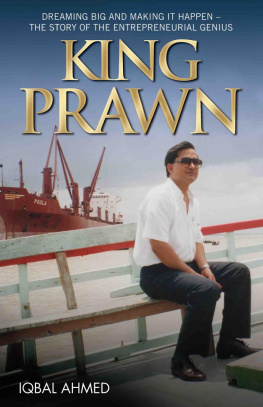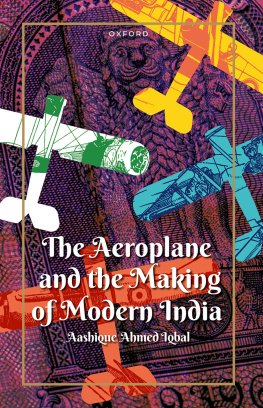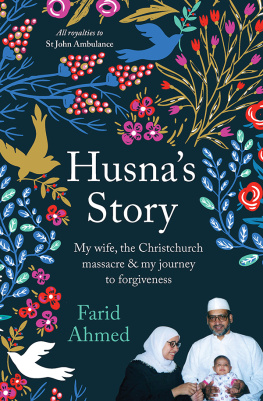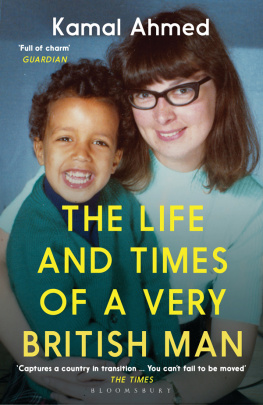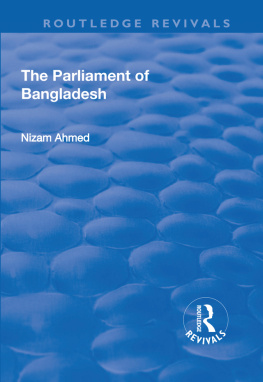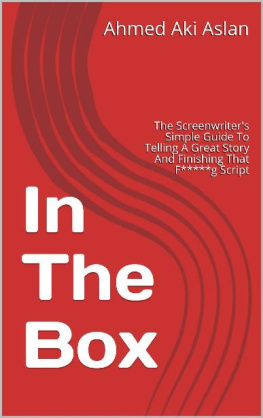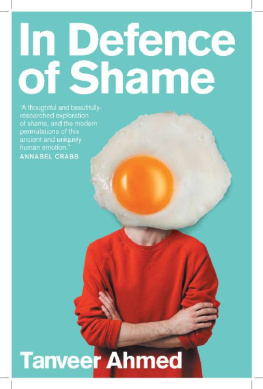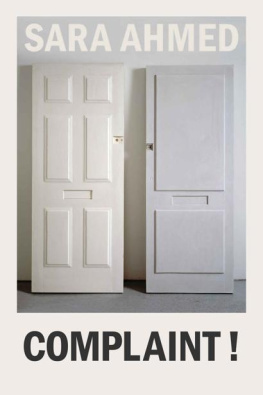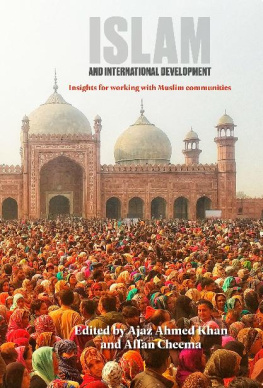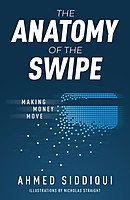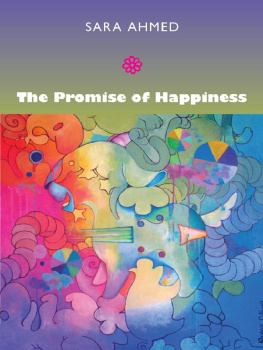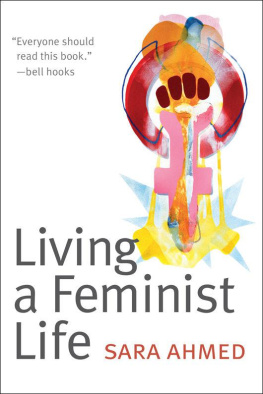I am thankful and indebted to my late father, my mentor and role model, for his struggle to give us all a better standard of life. Without him, all of this would not have been possible.
I would especially like to thank my brothers Kamal and Bilal for being encouraging and supportive throughout my life. They have been the two pillars that have stood with me from the very beginning, in business and in life.
I have three incredibly talented children, Shahida, Manzur and Hamida: they are truly a gift. I want to thank them for understanding and appreciating my ongoing ambition to succeed in every walk of life. Words cannot describe how proud I am to say that they have grown into young successful people in their own right.
My grandchildren, Parisa and Amira: I thank them for always making me smile and keeping me young at heart.
I would like to thank my three beautiful sisters, Rahela, Shajna and Jusna for giving me such fond memories from our childhood until today.
My entire extended family have been consistently supportive and I am thankful for all the moments we have shared. I hope we continue to make more memories as our family keeps growing. I look forward to discussing the events of this book with my family at future gatherings.
I would also like to thank my valued members of staff all around the globe for their loyalty and dedication.
It is in my nature to be forthcoming and friendly with whomever I meet, whether it is through business, socially or philanthropically. Since my childhood, I have enjoyed meeting new people and developing friendships from different backgrounds and I have always been intrigued by the different walks of life that people have taken to reach the point they are at. Over time, my circle of friends has changed, some are no longer the same people I once knew and came to cherish, but I am grateful for the role they played and the lessons they taught me.
I am grateful to everyone who helped in writing this book. So much hard work has gone into it from its inception to its publication.
I want to personally thank Stafford Hildred for approaching me in January 2013 to tell my story and for making this book possible.
Sincere thanks to my editor, Toby Buchan, for his help, guidance and expertise. I also want to thank my publisher, John Blake Publishing, for their confidence in me and for publishing my autobiography.
Lastly, my special thanks to Nita Shah for her involvement
and invaluable contributions.
IQBAL AHMED, OBE
T he journey of my life has so far taken me just over 5,000 miles from Sylhet in Bangladesh to Manchester in Great Britain, sixty years that have been full of every emotion from nerve-shredding terror to great happiness. I had the great good fortune to be born into a very warm and happy family in a beautiful country village. As I grew up I realised the wonderful benefits of being a part of a solid, traditional unit with many generations of distinguished ancestors.
My childhood memories are of receiving great care and consideration from my loving parents and also having a particularly strong relationship with my grandmother. She was a very wise and kind lady who taught me many lessons about life that I still value deeply. The importance of the family values instilled in me by my grandmother was certainly the key aspect of my early education.
Life was blissful in my youngest years, but as I reached my teens the political situation in my homeland deteriorated drastically. My father moved to England to earn money and build a new future for us. The country we now know as Bangladesh was then East Pakistan, and my early years coincided with the rise of the Bengali nationalist movement. The secure and peaceful life my family had enjoyed was ripped apart as violence grew between the Bengali people and the Pakistan army. With my own eyes I witnessed a terrible massacre of some ninety-four innocent people in the grounds of my own school and many other hideous atrocities. I will describe events in detail in the following pages, but the Liberation War (Muktijudda), or the Bangladesh War of Independence, completely transformed everything. Our comfortable existence disappeared forever and our family became, for a time, homeless refugees forced to move from relative to relative to safeguard our very existence.
I witnessed acts of heartbreaking brutality when my homeland was torn apart by the terrible conflict, but we survived. Eventually my father was able to arrange a safe passage for us all to join him. I arrived in Great Britain aged fifteen with my mother, two brothers and sister, fleeing the horrors of the war raging in our home country. My father had moved to Oldham several years earlier before the violence broke out. He had secured a job and established a home for us.
We were so relieved to be safe and together, but there were still many mountains to climb. Determined to complete my education, I spent time in London and experienced racism and rejection along the way before I was able to realise my boyhood dream of building a business. With my family all around me I have been able to create an internationally successful company that employs more than 4,000 people in many countries of the world.
Most important, I remain at the heart of a large and loving family, which is more crucial to me than all the business deals on earth. I am best known as the boss of Seamark and before I get into the details of the story of my life, I would like to set the scene, if I may, with a quick outline of the Seamark story. King Prawn is not exactly my favourite nickname, but I suppose I have come to deserve it! I was the first importer of ocean tiger prawns into the United Kingdom and we still process more than a million prawns and shrimps an hour, mainly at our factory in Chittagong, Bangladesh, and through our processing plants in Manchester.
We had a small grocery shop in Oldham and lots of ambition when I joined the family business and at the end of the 1970s turned it from retail to wholesale. My brothers Kamal and Bilal joined me and created Iqbal Bros & Co. By 1984 we were importing container loads of frozen seafood. As business began to take off we moved to much bigger premises with its own cold storage in East Manchester.
As imports began to thrive it was time to generate exports from Britain. Our progress was hindered by the fact many people found it difficult, at that time, to believe that an Asian family was running a successful business. So in our push to go global we created Seamark (Seafood Marketing International Ltd) and never looked back. The next big step came in 1993 when Seamark opened its own seafood processing plant in Openshaw, Manchester. This was followed in 1997 by a much bigger operation on the seven-acre former Johnstones paint site in Edge Lane, Droylsden.
I am delighted that the success of Seamark has allowed me to get involved in many different kinds of charity work. I am very fortunate. I have done everything from helping to rebuild my old school to launching a bank for Non-resident Bangladeshis. As I pass my sixtieth birthday, I feel I have packed quite a lot into my first six decades. I would like to think that this book might help to show people that you can be successful and Bangladeshi. I want this to be an inspirational book. I want to show it is possible to start at the bottom and work your way up to success. I hope you will enjoy the read!
I was born in the beautiful village of Siraj Nagar in the district of Sylhet in the north-east of what is now the proud country of Bangladesh, on 4 August 1956. There was not exactly a silver spoon in my mouth, but my family was prominent locally as long-established landowners and my circumstances were regarded as fortunate. Our home was a large farmhouse by a river, which was surrounded by a beautiful landscape of our own estates of small farms. The only way you could travel any distance was by boat or horse. The village was a wonderful place to be brought up in. As in any old town or city, people who build by the river build the best houses. It was like being next to the main road by todays standards, because the river was the main means of transport. Our caretakers and housekeepers live there now, but no members of our family live there, not for the last fifty years.

